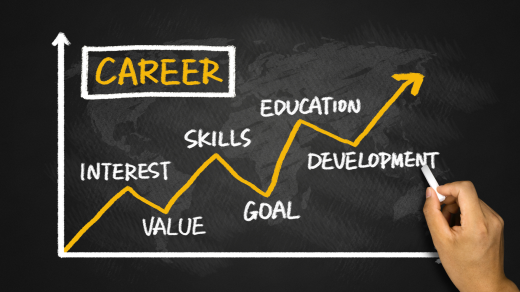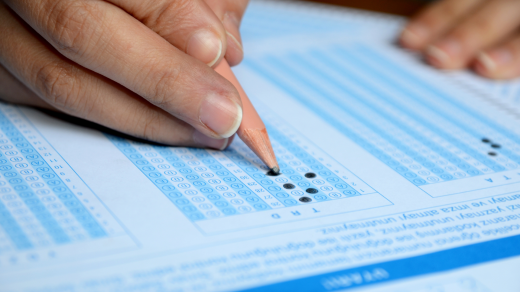Making the most of education involves more than just attending classes and completing assignments. Students must actively engage in their learning experiences to unlock their full potential. Taking the initiative to participate in discussions, seek help when needed, and explore diverse resources can transform one’s educational journey.
Establishing clear goals can also provide direction and motivation. When students define what they want to achieve, they can tailor their efforts and focus on the steps required to reach those objectives. Cultivating a mindset of curiosity and resilience will help them navigate challenges and seize opportunities that arise throughout their studies.
Furthermore, building relationships with peers and educators enhances the learning experience. Networking can lead to collaborative projects, mentorships, and lasting connections that extend beyond the classroom. By fostering these relationships, students not only enrich their education but also prepare themselves for future professional environments.
Maximising Study Skills
Enhancing study skills is essential for academic success. Developing effective habits and exploring various note-taking techniques can significantly improve retention and understanding of material.
Developing Effective Study Habits
Establishing a consistent study routine is crucial. Setting specific times for studying each day can create a sense of discipline. This practice encourages the brain to allocate its resources efficiently. Utilising the Pomodoro Technique can also be beneficial. This method involves studying for 25 minutes, followed by a 5-minute break. Repeating this cycle helps maintain focus and prevents burnout.
Additionally, creating a dedicated study space is important. A quiet, organised location with minimal distractions can enhance concentration. Keeping all study materials readily available reduces the time taken to switch between tasks.
Exploring Different Note-Taking Techniques
Effective note-taking can dramatically enhance comprehension. Students should consider methods like Cornell or mind-map techniques. Both formats cater to different learning styles. The Cornell Method divides the page into sections for cues and summaries. This setup allows for easy revision. It encourages students to actively engage with the material rather than passively record it.
Mind mapping promotes visual learning. It helps in connecting concepts and retaining information more effectively. Using colours and images can stimulate memory and make notes more engaging. Ultimately, experimenting with various methods allows students to discover what suits them best. Balancing technique and personal style leads to improved study sessions.
Creating a Productive Study Environment
A well-structured study environment is essential for effective study sessions. By organising the study space and minimising distractions, students can optimise their focus and productivity.
Organising your Study Space
To create a productive study area, clear organisation is key. Students should ensure their workspace is tidy, with all necessary materials within reach. A clean desk reduces visual clutter, which can distract from tasks.
Using storage solutions, such as shelves or drawers, helps keep books, notes, and stationery neatly arranged. Designating specific areas for studying and relaxing can also aid in maintaining focus. Incorporating a comfortable chair and adequate lighting enhances physical comfort. Adjustable lighting allows students to create a suitable atmosphere for different tasks, whether reading or writing.
Minimising Distractions for Focused Learning
Identifying and minimising distractions is vital for maintaining concentration. Students should start by turning off notifications on their devices to prevent interruptions. Using apps to block distracting websites during study sessions can be very effective. Additionally, establishing a designated study time helps reinforce a routine, signalling to the brain that it’s time to focus.
Noise can also be a major distraction. If silence is not possible, listening to ambient sounds or classical music can aid concentration. Creating a “Do Not Disturb” sign can inform others when study time is in progress. Maintaining a consistent study schedule encourages effective study habits and helps optimise learning potential.
Time Management for Students
Effective time management enables students to maximise their academic success while maintaining a healthy balance in their lives. Learning how to prioritise workloads and allocate time for both study and extracurricular activities plays a crucial role in achieving educational goals.
Prioritising Academic Workloads
Students should start by assessing their academic responsibilities. Creating a to-do list can help visualise tasks. The list should include deadlines, assignment types, and estimated completion times.
Next, applying the Eisenhower Matrix can aid in prioritisation:
| Important / Urgent | Important / Not Urgent |
| Tasks needing immediate attention | Long-term projects and studies |
| Not Important / Urgent | Not Important / Not Urgent |
| Tasks that can be delegated | Low-priority tasks |
By focusing on important tasks first, students can manage time effectively. Setting specific study goals can also enhance productivity, making study sessions more focused and less overwhelming.
Balancing Study Time with Extracurricular Activities
Establishing a timetable is essential for maintaining a balance between study and extracurricular activities. Students should allocate specific time slots for studying, ensuring that they adhere to these commitments.
It’s helpful to plan study sessions around extracurricular activities. For instance, they can use downtime between classes or activities to review notes or read materials. This approach optimises time and reduces cramming before exams.
Engagement in extracurriculars also fosters personal development. Students should not neglect these activities, as they enhance skills like teamwork and leadership. Striking a balance ensures academic success and personal growth.
Assessment and Feedback
Assessment and feedback are crucial for academic progress. They provide students with insights into their strengths and areas that require improvement, guiding their study efforts effectively.
Utilising Feedback for Academic Improvement
Utilising feedback is essential for enhancing academic performance. Students should actively seek feedback from teachers on assignments, tests, and projects. Recognising specific comments regarding strengths and weaknesses can help focus efforts.
- Implementing Suggestions: Students should revisit their work after receiving feedback. This involves making revisions based on the suggestions provided by educators.
- Setting Goals: Establishing specific, measurable goals based on feedback can lead to targeted improvement. By mapping out areas needing focus, students can track their progress more effectively.
- Peer Review: Engaging in peer review can also be beneficial. Sharing work with classmates allows for diverse perspectives and further insights.
Effective Revision Strategies Before Exams
Effective revision strategies are essential for exam preparedness. Students should create a structured revision timetable to ensure comprehensive coverage of all subjects.
- Active Learning Techniques: Mixing traditional studying with active methods, such as summarising information or teaching concepts to peers, enhances retention.
- Practice Papers: Completing past exam papers under timed conditions can build familiarity with the exam format and improve time management.
- Study Groups: Participating in study groups allows for interactive learning. Discussing topics with classmates can clarify doubts and strengthen understanding.
Incorporating these strategies and actively responding to feedback can significantly enhance a student’s educational experience.




